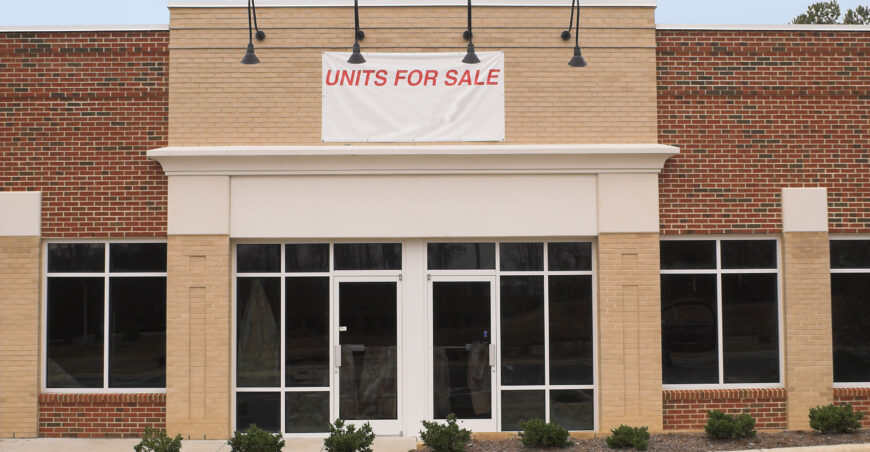There are two type of decision makers when purchasing a property. Commercial property owners, those who make decisions regarding space that they need to use for their business and commercial property investors, those who make decisions regarding investment in properties that are or could be leased to users.
Commercial property owners might also be a commercial property investor, e.g. a company that owns the building that it occupies for a home office or uses for a warehouse. Even so, it is useful to separate the decision to use the real estate from the decision to invest in the real estate because the user could have chosen to lease the same property from an investor or sell it to an investor and leas it back. A property might be of great use for a business but not a good investment for that particular company. On the other hand, a property might be a great investment but not a good location or good space for a particular business. Thus, we want to understand the decisions that are important for users and investors regardless of whether a particular user is also an investor, make sense?
Commercial Property Owners Decisions

Commercial property owners want space that meets the needs of their business in terms of the location, size and layout of the space, quality of the building, and perhaps proximity to other business that might be suppliers or customers. Users will be concerned about the occupancy costs of the space which will depend (to a large extent) on the terms of the lease. As noted above, users could own or lease their space. Deciding to use the space is a use decision and deciding to own the space they use it an investment decision which must provide an adequate return as any investment. The company could be using the capital for other purposes. Users are confronted with many decisions while acquiring the space, holding the space, and disposing of the space. The following is a partial list of major decisions with which users are confronted.
Acquisition Decisions
- Should space be acquired?
- What type and how much space should be acquired?
- Where should space be acquired?
- What should the space acquisition entity be?
- Should the space be leased or purchased?
- What should the space acquisition process be?
Holding Period Decisions
- Leased Space
- Should discretionary capital expenditures be made?
- Should the capital structure of occupancy be changed?
- Should the space utilization be changed?
- Should the user continue to occupy the space?
- Should any lease options be exercised?
- Should the leased be renegotiated?
- Should the space be disposed of?
Owned Space
- Should discretionary capital expenditures be made?
- Should the capital structure be changed?
- Should the space utilization be changed?
- Should the user continue to occupy the space?
- Should the property be sold or exchanged
Disposition Decisions
- What should the disposition price be?
- What should the disposition method be?
- What should the disposition process be?
Commercial Property Investors Decisions

Commercial property investors are primarily interested in receiving a return on their investment (yield) that is commensurate with the risk that they will incur by making an investment. The rate of return is the percentage return on each dollar invested for each period it is invested. Investors can compare investment alternatives using the rate of return. Rates of returns can be estimated on a before-tax or an after-tax basis. The more risk the investment entails, the higher the return the investor should expect. Of course, the actual return may differ from the expected return. Investors are ultimately interested in maximizing their wealth, but they will have different tolerances for risk that they are willing to accept in achieving this goal so they may be willing to strive for a lower wealth target if that means they will not incur as much risk. Thus, investors usually decide on the level of risk they are willing to accept and try to maximize their return while keeping the risk at that level.
Acquisition Decisions
- Should investment real estate be acquired?
- What type of investment real estate should be acquired?
- When should investment real estate be acquired?
- Where should investment real estate be acquired?
- Which of the available investment real estate alternatives should be acquired?
- How should the investment real estate be acquired?
- What should the source of debt and equity capital?
- What should the investment real estate acquisition entity be?
- What should the acquisition price and terms of the investment real estate be?
Holding Period Decisions
- Should discretionary capital expenditures be made?
- Should the financing structure be changed?
- Should the property use be changed?
- Should the ownership entity be changed?
- Should the property be held or sold?
- Should the operating strategy be changed?
Disposition Decisions
- What should the disposition priced be?
- What should the disposition method be?
- What should the marketing process be?
What end of the spectrum do you sit on? Do you fit “commercial property owners” looking for the right property to lease? Does purchasing make sense for you? Are you “commercial property investors” looking to place your capital into the right investment. If you’re not quite sure how to move forward feel free to reach out to me to discuss your options.
















